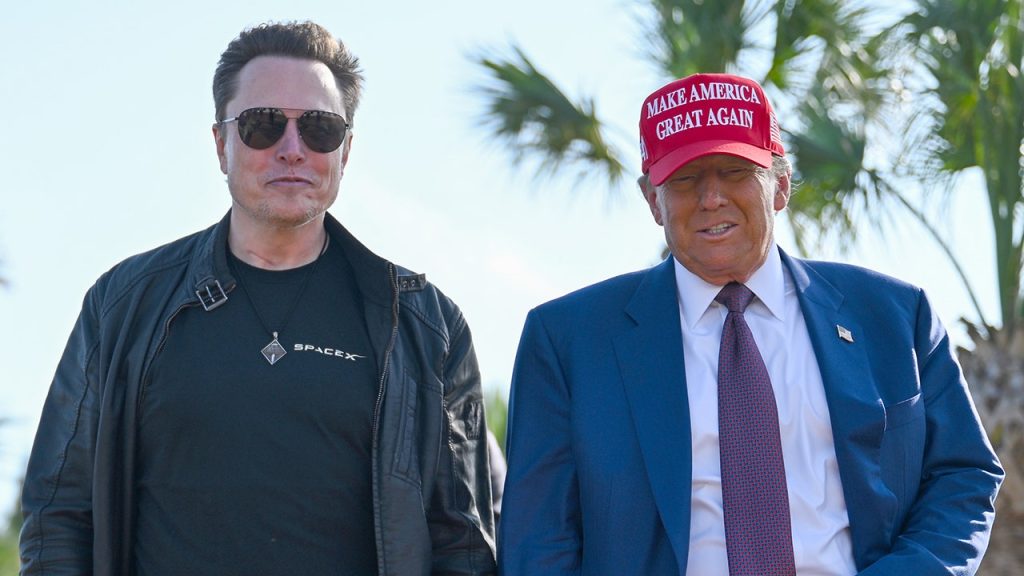Elon Musk, the driving force behind the Department of Government Efficiency (DOGE) initiative, has launched a scathing attack on the U.S. Agency for International Development (USAID), calling for its complete dismantling. During a recent conversation on X (formerly Twitter), Musk revealed that President Donald Trump shares his view and that the process of shutting down the agency is already in motion. Musk’s characterization of USAID went beyond mere criticism, describing it not as an apple with a single worm, but as an irredeemable “bowl of worms.” This stark assessment reflects Musk’s belief that the agency is beyond salvation and must be entirely eradicated. This radical stance has sent shockwaves through the development community and sparked intense debate about the future of U.S. foreign aid.
Musk’s pronouncements regarding USAID have been increasingly vehement. He has unleashed a barrage of condemnations on X, labeling the agency a “criminal organization” and a “viper’s nest of radical-left Marxists who hate America.” These accusations, presented without specific evidence, paint a picture of an agency deeply infiltrated by subversive elements and actively working against American interests. This rhetoric aligns with a broader narrative of government overreach and corruption, resonating with a segment of the population skeptical of foreign aid and international engagement. Musk’s comments suggest a fundamental distrust of the agency’s mission and operations, fueling his determination to dismantle it.
The purported agreement between Musk and Trump to shut down USAID marks a significant escalation in the campaign against the agency. While Trump’s public pronouncements on USAID have been less inflammatory than Musk’s, his administration has demonstrated a history of skepticism towards foreign aid. Previous actions, such as placing USAID workers on leave and pausing aid disbursements, indicate a predisposition towards reducing the agency’s influence. The alignment between Musk and Trump on this issue suggests a potential shift in U.S. foreign policy, with a decreased emphasis on traditional development assistance.
Musk’s involvement through the Department of Government Efficiency (DOGE) adds another layer of complexity to the situation. While the specifics of DOGE’s mandate and authority remain unclear, Musk’s leading role suggests a focus on streamlining government operations and eliminating perceived waste. His targeting of USAID suggests a belief that the agency represents a prime example of government inefficiency and potentially even malfeasance. The question remains how DOGE’s involvement will formally impact USAID’s future, given its apparent mandate to improve government efficiency rather than dictate policy.
The implications of USAID’s potential shutdown are far-reaching. The agency plays a vital role in providing humanitarian assistance and development aid across the globe, addressing issues such as poverty, disease, and disaster relief. Its closure would leave a significant void in the international development landscape, potentially impacting millions of people dependent on its programs. Critics of the move argue that it would undermine U.S. soft power and diminish its ability to influence events on the global stage. Furthermore, they contend that dismantling USAID without a viable alternative could exacerbate existing problems and create new challenges in vulnerable regions.
The controversy surrounding USAID’s future highlights the ongoing debate about the role and effectiveness of foreign aid. Supporters of the agency argue that it plays a crucial role in promoting stability, alleviating suffering, and advancing U.S. interests abroad. They maintain that development assistance is a vital tool of diplomacy and a reflection of American values. Conversely, critics question the agency’s effectiveness and express concerns about mismanagement, corruption, and the potential for aid to be misused or misdirected. The unfolding situation with USAID serves as a microcosm of the broader discussion about the purpose and efficacy of foreign aid in the 21st century. The debate will likely continue as the potential consequences of USAID’s dismantling are further examined and debated.

